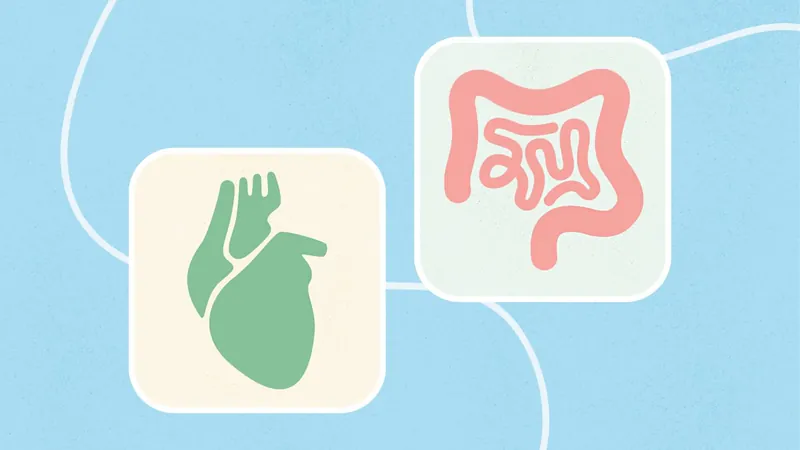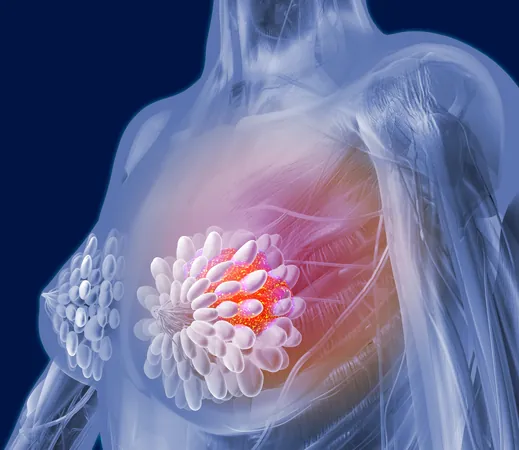
Shocking Link: Colorectal Cancer Patients At Greater Risk of Heart Disease Fatalities!
2025-03-25
Author: Wei
Recent groundbreaking research presented at the American College of Cardiology's Annual Scientific Session in Chicago unveils alarming revelations regarding the connection between colorectal cancer and heart disease deaths. This comprehensive study analyzed data from over 630,000 patients, shedding light on a crucial intersection of oncology and cardiology.
Lead researcher Dr. Ahsan Ayaz, an internal medicine resident at Montefiore St. Luke's Cornwall Hospital, stated, “To our knowledge, this is the first population-based study assessing disparities in cardiovascular mortality among colorectal cancer patients.” The scale of this analysis enables the identification of specific subgroups at heightened risk and the exploration of effective strategies for improving survival outcomes.
Unveiling the Critical Two-Year Window
The research reveals that the first two years following a colorectal cancer diagnosis are alarmingly crucial. During this period, patients face a staggering 45% increased risk of dying from heart-related complications, which include heart disease, hypertension, and cerebrovascular issues like strokes. This heightened vulnerability coincides with intensive cancer treatments—chemotherapy, radiation, and surgery—that can significantly affect cardiovascular health, according to Dr. Robert S. Copeland-Halperin, a cardiology professor at the Zucker School of Medicine.
Young Adults: A Highly Vulnerable Demographic
One of the most striking findings pertains to patients under 50 years old, who were found to be 2.4 times more likely to succumb to heart-related causes compared to their peers without colorectal cancer. Dr. Ayaz expressed concern, referring to the reason behind this trend as one of the “most curious” questions pending further investigation. The increase in colorectal cancer incidence among younger adults may suggest more aggressive cancer types requiring harsher treatments that could impact heart health.
Genetic predispositions may also play a role. Dr. Salim Hayek, a cardiologist at the University of Texas Medical Branch, noted that certain cancer therapies may cause critical issues, including vasospasm, ischemia, and arrhythmias, while possibly escalating risks of high blood pressure and heart disease.
Racial Disparities in Heart Disease Risk
In a concerning statistic, Black adults diagnosed with colorectal cancer faced a staggering 74% higher risk of mortality from heart complications compared to other demographics, highlighting the urgent need for tailored healthcare strategies that consider racial disparities in treatment and outcomes.
Empowering Patients: Strategies to Combat Heart Disease Risk
Given the significant risk present in the initial two years post-diagnosis, Dr. Ayaz emphasizes the importance of proactive discussions with healthcare providers regarding individual cardiovascular risk factors. “Patients should engage with their doctors about potential heart disease risks tied to their cancer treatment,” he advises.
Key recommendations to mitigate cardiovascular risks include: - Managing high cholesterol levels - Keeping high blood pressure in check - Effectively treating diabetes - Quitting smoking - Achieving a healthy weight - Adopting a nutritious diet - Ensuring regular physical activity
“While cancer patients may not be able to change their past, addressing modifiable risk factors can significantly improve heart health and overall outcomes,” Dr. Copeland-Halperin asserts.
This research serves as a vital wake-up call, underscoring the urgent need for increased awareness and targeted interventions for cardiovascular health among colorectal cancer patients, especially during their most vulnerable periods. Stay informed and proactive—your heart health could depend on it!



 Brasil (PT)
Brasil (PT)
 Canada (EN)
Canada (EN)
 Chile (ES)
Chile (ES)
 Česko (CS)
Česko (CS)
 대한민국 (KO)
대한민국 (KO)
 España (ES)
España (ES)
 France (FR)
France (FR)
 Hong Kong (EN)
Hong Kong (EN)
 Italia (IT)
Italia (IT)
 日本 (JA)
日本 (JA)
 Magyarország (HU)
Magyarország (HU)
 Norge (NO)
Norge (NO)
 Polska (PL)
Polska (PL)
 Schweiz (DE)
Schweiz (DE)
 Singapore (EN)
Singapore (EN)
 Sverige (SV)
Sverige (SV)
 Suomi (FI)
Suomi (FI)
 Türkiye (TR)
Türkiye (TR)
 الإمارات العربية المتحدة (AR)
الإمارات العربية المتحدة (AR)